 The Religious Studies Project re-posted our link to the recent panel on the Nones — have you seen it?
The Religious Studies Project re-posted our link to the recent panel on the Nones — have you seen it?
Discussing the “Nones”
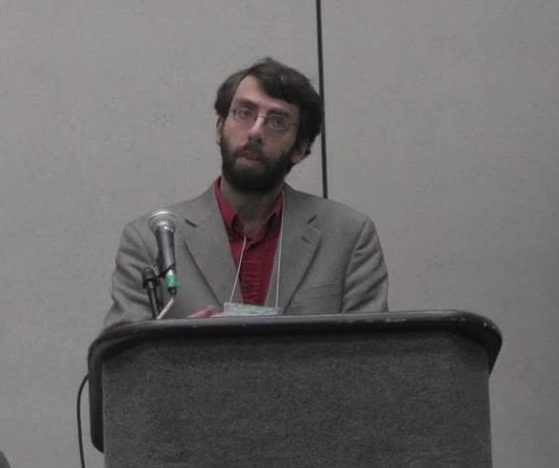
This year in Baltimore, at the Annual Meeting for the American Academy of Religion, Culture on the Edge members Monica Miller and Steven Ramey — along with Chip Callahan (University of Missouri), Sean McCloud (UNC Charlotte), and Patricia O’Connell Killen (Gonzaga University) — were panelists in a roundtable discussion, “Discussing the ‘Nones’: What They Say about the Category of Religion and American Society” where part of their thoughts on the Nones stemmed from the ideas and conversations around their co-authored Huffington Post article. Continue reading “Discussing the “Nones””
Stay Tuned…
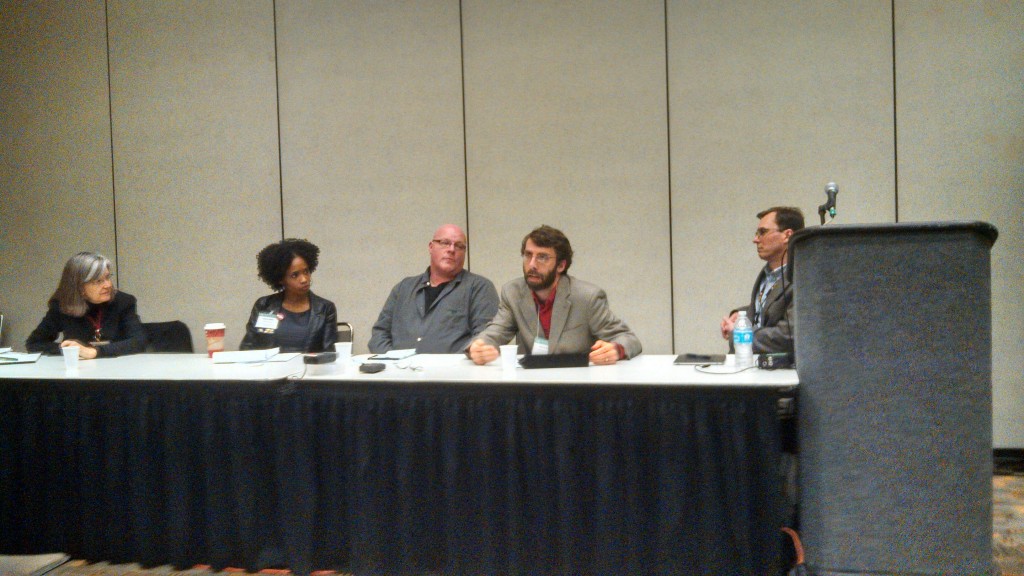 Our Curator, Andie Alexander, was in Baltimore recently, at a conference, and she filmed a panel on “the Nones” featuring a couple members of Culture on the Edge.
Our Curator, Andie Alexander, was in Baltimore recently, at a conference, and she filmed a panel on “the Nones” featuring a couple members of Culture on the Edge.
The full panel, posted in several parts, will soon be online. In the meantime, did you see the report from this panel that we posted not long ago?
So stay tuned….
In the Eye of the Beholder
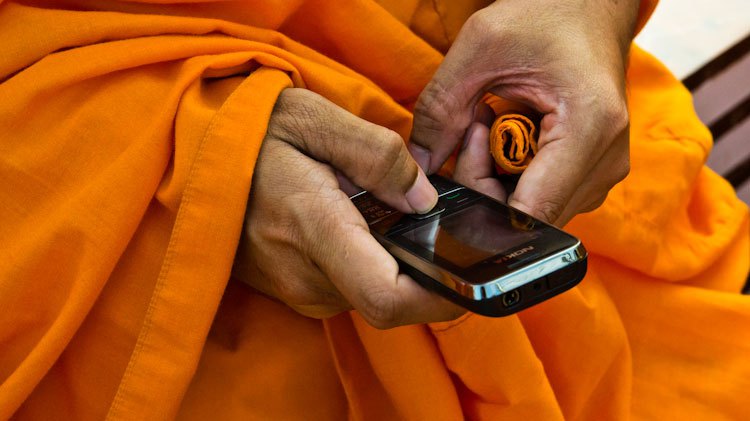
A graduating senior in our Department recently wrote a very nice blog post, for our Department’s site, on how disappointed a friend of hers, whom she had met while traveling in India, was when discovering a Buddhist monk using a cell phone. (Read her blog post here.) I posted a link to the article on a Facebook group devoted to the History of Religions — a group that, despite being some people’s preferred technical name for our academic discipline, has attracted a diverse membership. Someone in the group, having read the post, soon commented on how a monk with a cell phone was evidence of decay in religions. Continue reading “In the Eye of the Beholder”
Meaningless Surveys: The Faulty Mathematics of the Nones
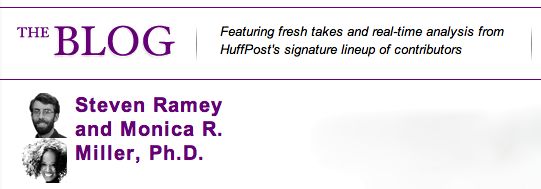 Culture on the Edge’s Monica Miller and Steven Ramey co-authored the following post,
Culture on the Edge’s Monica Miller and Steven Ramey co-authored the following post,
published originally at the Huffington Post on November 7, 2013.
People unaffiliated with a religion, commonly grouped as the ‘Nones’, are all the rage right now and have beckoned responses from faith leaders to philosophers and scholars of religion. Common among such responses is an unwavering and uncritical belief in the statistical reality of this group; very few, in our opinion, have questioned how this group came to exist in the laboratory of statistical analysis and myopic survey questions. Most recently, a series on the New York Times Room for Debate page featured references to the Nones and the similar Pew report on the status of Judaism in America. However, the methodological basis for all of this excitement is actually quite thin. Continue reading “Meaningless Surveys: The Faulty Mathematics of the Nones”
Using Four-Lettered Words: Part Two

“What Justice Kennedy has undertaken in this initial statement of fact, or more properly, of data, that is to say, facts accepted for purposes of the argument…”
– Jonathan Z. Smith, “God Save This Honourable Court” (Relating Religion, p. 382)
While she was on our campus a few weeks ago, I noticed Monica Miller using the word “data” to refer to the things that she studied — things such as African American religion, scholars of African American religion, rap lyrics, and rap artists — and so I asked her a question or two about what she thought was entailed in that word and why she seemingly opted for it rather purposefully in both her public lecture, the evening before, and then during an informal lunchtime discussion with our students the next day. And then, just the other day, Leslie Smith posted on this site, using this four-lettered word in her post’s title — a use that did not go unnoticed by some on Facebook who soon were debating what was termed the dehumanizing effects of such objectifying terminology. (And now the Bulletin‘s blog has entered the debate as well.) Continue reading “Using Four-Lettered Words: Part Two”
Islamophobia
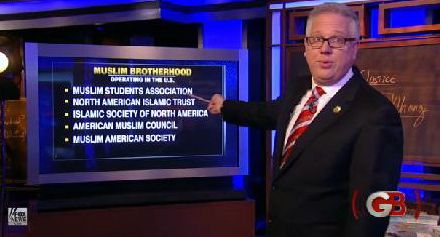 The recent round of criticism of FOX News’s online interview of Reza Aslan has got me thinking a little more about this charge of Islamophobia that you often hear leveled by those on the political left — as in those who criticized any analysis of this episode that failed to out the FOX network (or other media personalities) as stirring the embers of hatred among some segments of the U.S. population of Muslims, either at home or abroad. While the bizarre questions posed to Aslan about not disclosing an identity that he in fact routinely discusses in the media — insinuating, it would seem, that some worldwide conspiracy would finally be evident if the American public knew that a Muslim author had written a book on Jesus?! — or the breath-taking conspiracy theories of some commentators on the political right (such as Glenn Beck, in action above) are quite troubling to me in a number of ways, I’m not so sure about this label of Islamophobia. Continue reading “Islamophobia”
The recent round of criticism of FOX News’s online interview of Reza Aslan has got me thinking a little more about this charge of Islamophobia that you often hear leveled by those on the political left — as in those who criticized any analysis of this episode that failed to out the FOX network (or other media personalities) as stirring the embers of hatred among some segments of the U.S. population of Muslims, either at home or abroad. While the bizarre questions posed to Aslan about not disclosing an identity that he in fact routinely discusses in the media — insinuating, it would seem, that some worldwide conspiracy would finally be evident if the American public knew that a Muslim author had written a book on Jesus?! — or the breath-taking conspiracy theories of some commentators on the political right (such as Glenn Beck, in action above) are quite troubling to me in a number of ways, I’m not so sure about this label of Islamophobia. Continue reading “Islamophobia”
